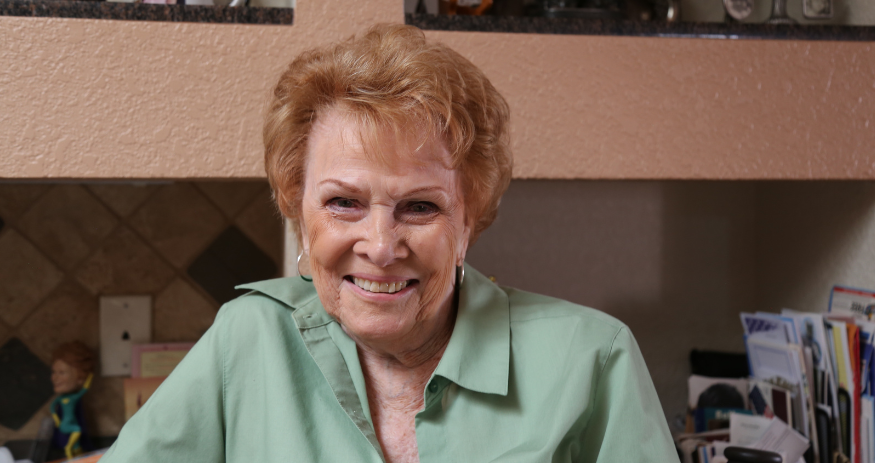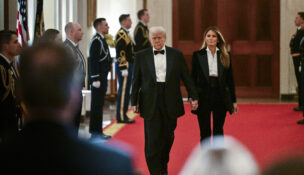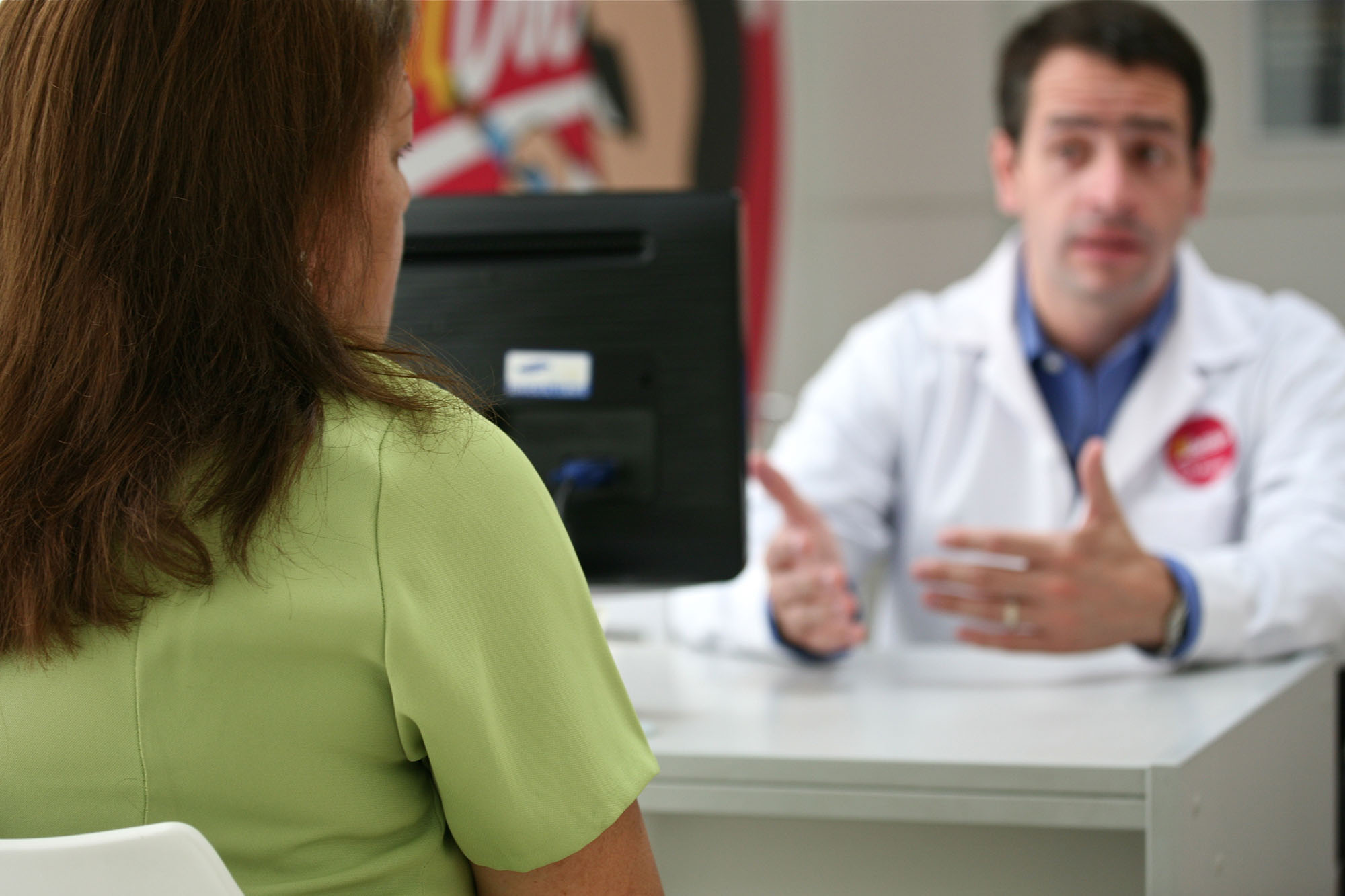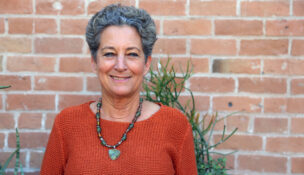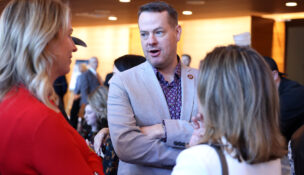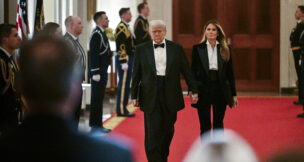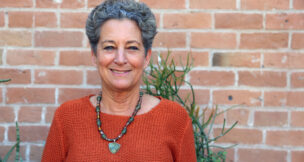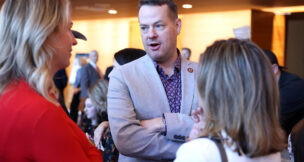Helen Purcell: Reflections on a recorder’s record and life in politics
Kiera Riley Arizona Capitol Times//October 11, 2024//
Helen Purcell: Reflections on a recorder’s record and life in politics
Kiera Riley Arizona Capitol Times//October 11, 2024//
Helen Purcell served as the Maricopa County Recorder from 1989 to 2017. During her time, she oversaw leaps and bounds in election systems and flux in public attitudes. Since leaving office, she continues to work to strengthen trust.
How did you end up involved in politics?
I worked a lot with the title companies in closing loans. My friendships revolved around the people that I worked with. I became very good friends with the Secretary to the President of the company, and she and I hung out a lot, and that’s where I ultimately met my husband, Joe.
My son was five, and he had a boy who was nine at the time. For a while, I just worked part time. Joe finally said, you know, why don’t you stay home? So I quit working.
Joe came home one day and said, “I have this real good friend who is going to run for governor. And since you have all this time on your hands, maybe you could help him out.” I don’t know anything about politics. I’ve never been really involved in politics at all. But okay.
I started working for him a couple of days a week. And then, as it got into 1974, which was the election year, I worked more and more, and I ended up being a full-time employee. Russ Williams was the candidate. The chairman was Jane Hull. So that’s how I met Jane. Jane and I were both born in Kansas, same year. She was born 8/8 and I was born 10/10, so we were very close in age. We both moved to Arizona the same year. We just had a lot of similarities. We really became very good friends right off the bat.
I was doing some accounting work, but mainly constituent services and stuff like that for Russ’s campaign. My sphere of friends expanded to be all the people that I met in the campaign, which was a lot. We had a small office, but then when Russ won the primary, all of the Republican candidates for state and federal offices moved into a great big building on North Central. So you’re just not your campaign, but you were involved in all the other campaigns as well.
It was a good education for me. Before then, I had no clue about politics at all. I had voted. That was about it.
What excited you about politics? What kept you in it?
It just really got in my blood, and I felt like I could do something. I always loved working, and I was disappointed when my husband asked me to quit and stay home, because that just wasn’t me. I had worked since I was 14 or 15, so this gave me something to be involved in, and it was, you never knew what the outcome was going to be. So you’re always working real hard to do something. Are you going to make it?
What led you to seek office?
My husband from 1970 to 76 was the city attorney for Phoenix, and we used to go to a lot of city events, and I was amazed that when people found out he was with the city, they were always complaining about something the city did or didn’t do. And it amazed me that a lot of those people didn’t vote.
I was just amazed. They’re complaining about this. Why don’t they try to do something about it? I wanted to make sure that people participated. For the whole time that I was recorder, that’s something that hit me.
How was your first campaign?
I have a personal feeling that women have to be more qualified for jobs than men do when you’re out on the campaign trail. I notice they hardly ever ask a man what his qualifications are.
They always ask a woman. That’s changed a lot now in the years since, but that’s one thing that struck me. I always got asked what my background was, what my experience was.
I figured that two things that that office did, which was voter registration and maintaining the voter rolls and recording real estate documents, both of those things I had a background in, yeah, so I thought that I came in with a little something to offer
I was one of three Republican candidates, and I didn’t think I had a chance. One was a Scottsdale city councilwoman. There was a gentleman from the East Valley. He was a graduate of Princeton, always wore a Princeton tie. He always talked down to me because I didn’t have a college degree, so that got to be a little bit much.
Jane Hull had gotten me involved in Republican women’s clubs, so I was a member of a very big club, and they were a lot of my support and encouragement to get into the race. They helped a great deal. We figured there’s somehow we’ve got to get to people. I didn’t have a lot of money. We had a few signs out, certainly not what we see today, but I had some people that went out and did traffic pattern studies, so we just got the best corners. So that was something, but we decided to take copies of all of the petitions that all three of us had gotten signed. My group of ladies sent postcards to everyone who had signed a petition, and I just thanked them for signing a petition for recorder. I didn’t say they signed mine. I said thank you for signing a petition.
It took us weeks to do that. We sent that out not too long before the election, and I really think that’s what made a difference. If somebody has enough interest to sign a petition, they’re probably going to vote.
How did it feel to win?
I was the most surprised person on the planet. It was not an overwhelming win, but it was a win. It was scary. Now, I had been in positions before where I was a supervisor and so forth, so it was not like I was not used to that type of thing, but it’s different. You’re in charge. The buck stops with you.
What changes did you usher in during your time in office?
I put together a group of people to study what we could do to automate the office. I went to the legislature and asked for the money to do it, but I asked for it every time a document is recorded, if I could take a portion of that money and that could be applied only to automating the recorder’s office. We finally got that passed, with the other recorders joining in, and set the maximum that we could charge or divert to that was $4. Every time a document is recorded, then $4 went into this fund.
Well, at some point you’re going to have enough money to invest and do something. So this group that I put together of people from our office, people from the title and mortgage business, and people who were IT smart, came up with a plan to automate the office. We were able to write our own programs for a voter registration system that was halfway decent. I had 25 people in my IT department. Some of the other offices in the county were very envious of what we got done. We upgraded all the time in our elections.
What were some of the biggest challenges you encountered?
We had a sheriff’s race between Arpaio and Penzone. That was the first time we saw the mobs. That was when I first had to put in bulletproof glass because we had people who were going to lynch me the night of the election. And for the 14 days it took us to count that election. It was an awful time. That was the first time I had ever seen anything like that. I’d had questions before, why’d you do this? And why can’t you get the results quicker? And so forth, but I’d never had people screaming that they were going to do me bodily harm, that they were going to hurt my kids, that kind of thing.
I’ve never seen a perfect election. You’re always going to have something crop up. Somebody didn’t show up at six o’clock in the morning. We had a bomb threat one time, so we had to move a polling location to a different location on election day. We had a microburst that blew the roof off of a polling place. We moved that polling place into the back of an 18-wheeler, because that’s the only thing we had available. One year, we had our ballots printed, our printer went into bankruptcy, and the court locked all the facilities with our ballots inside. You deal with stuff like that.
When you run into these challenges, these particularly stressful or intense moments, how do you stay centered? How do you stay grounded?
I knew that we were doing the best we possibly could, and that our people were very well trained and well-versed. I was always very comfortable that I had good people, that they were doing the best that they could.
What philosophy has guided you through life?
I was always of the opinion, if you want to get any place, you have to work hard at it. I think that’s important, but to enjoy your family. You really have to keep yourself balanced. I’m lucky because I’m Libra. Libra is a balance.

